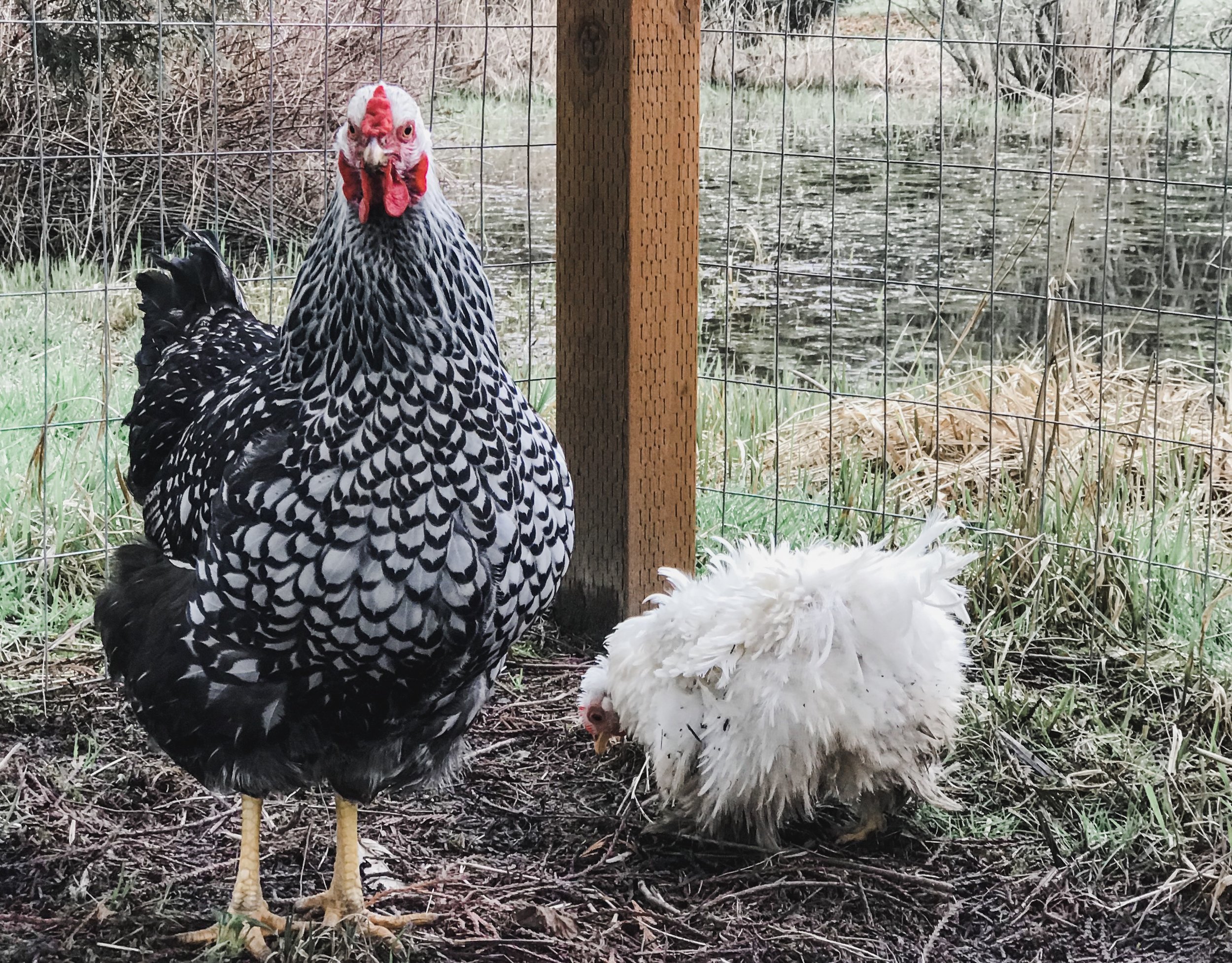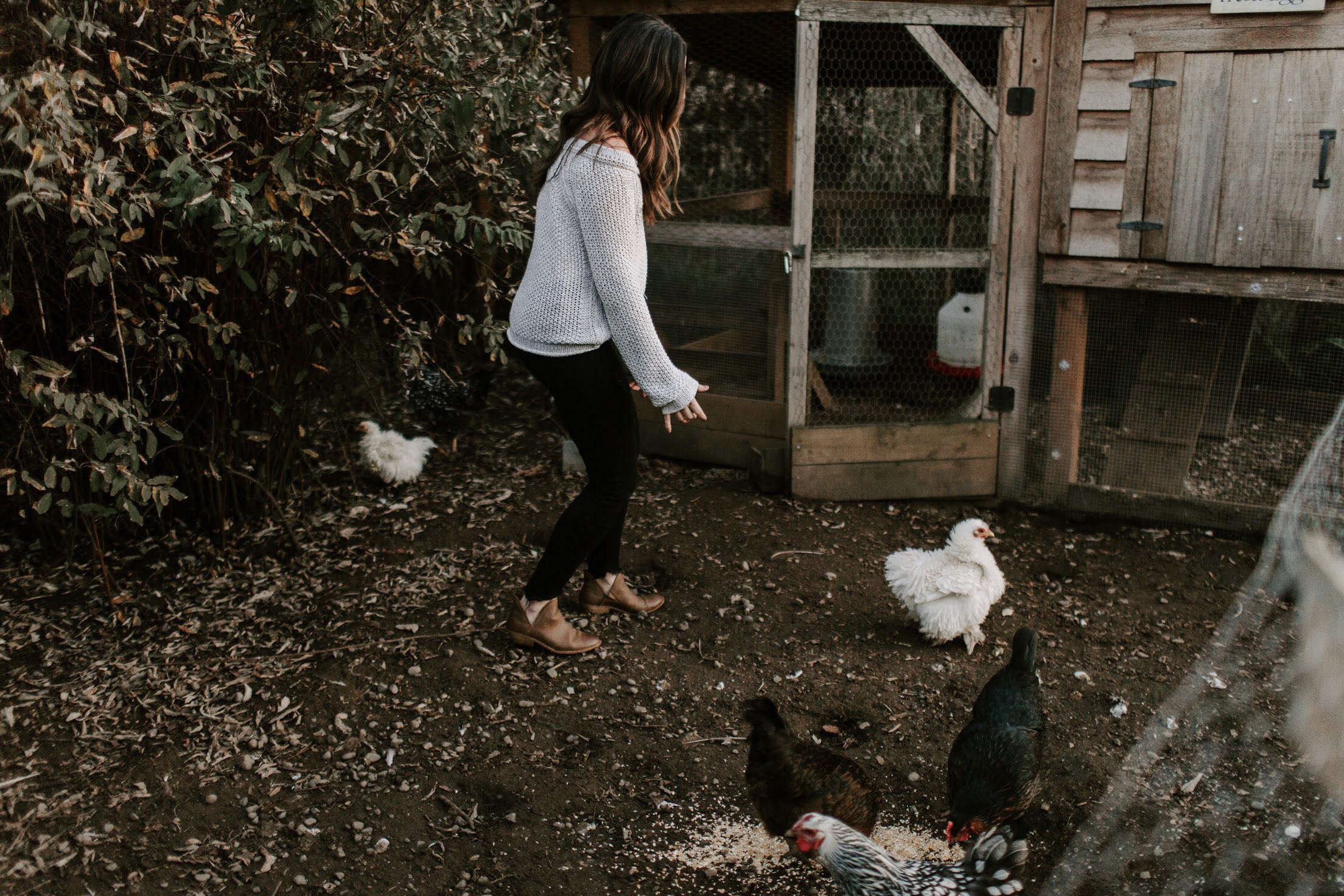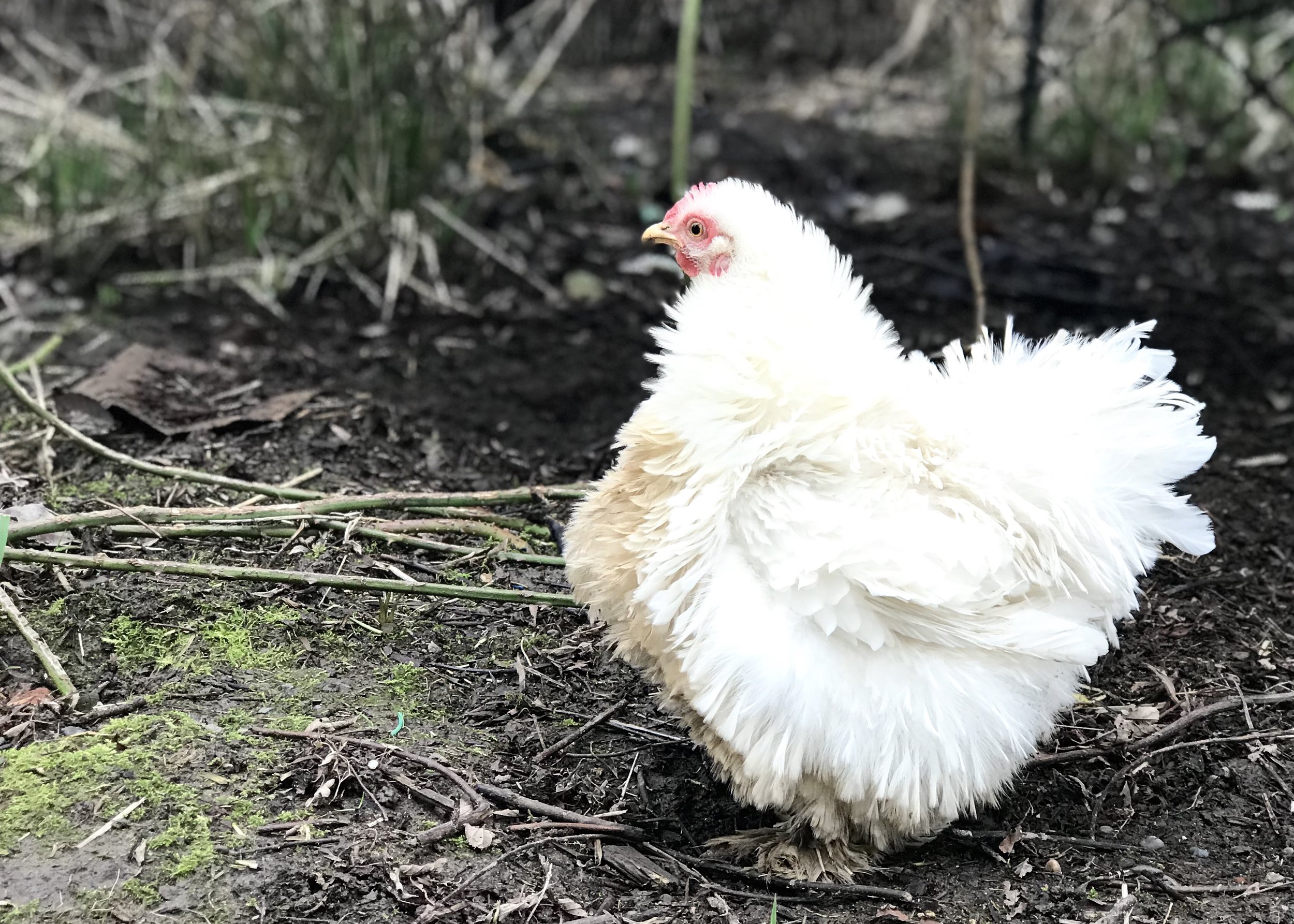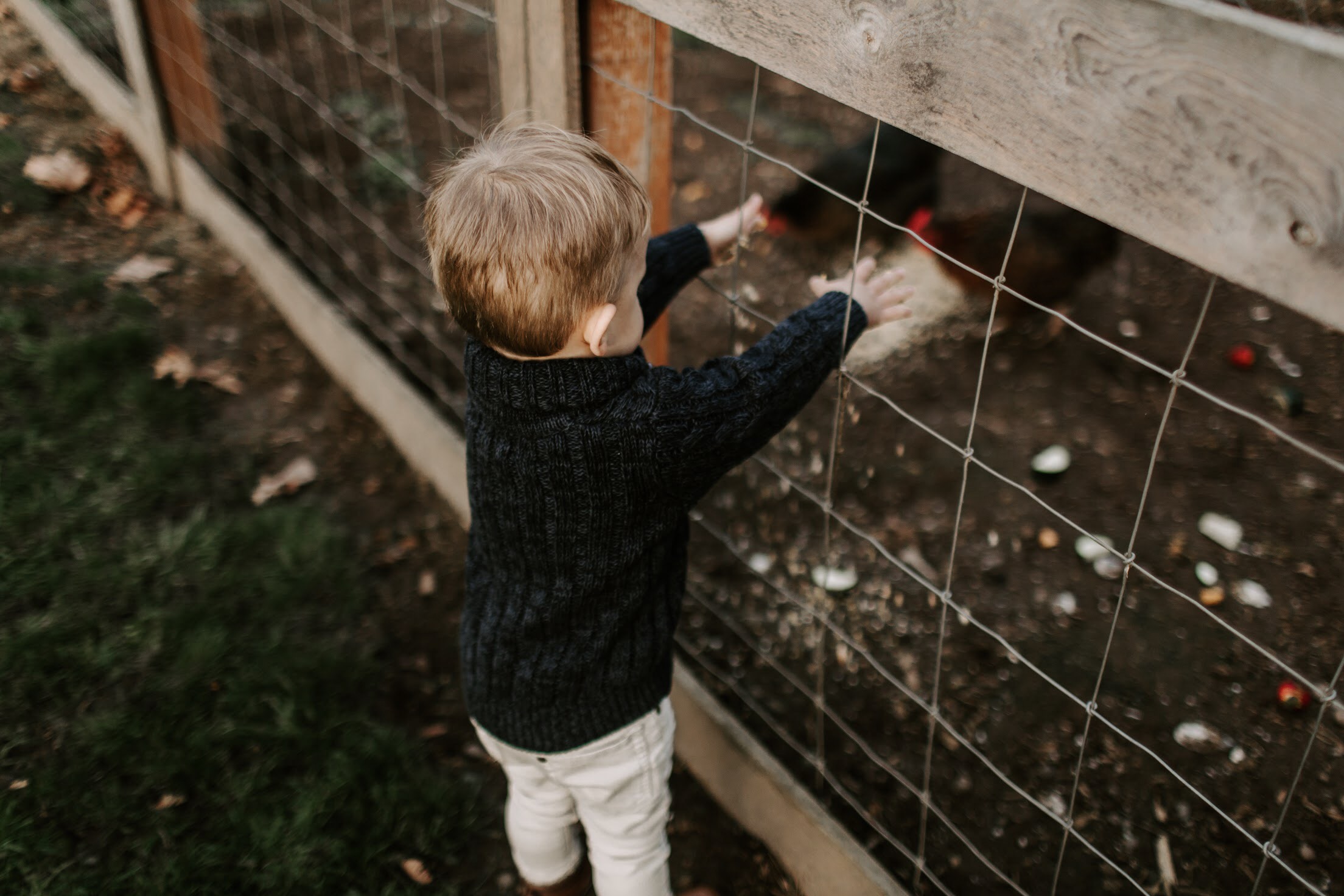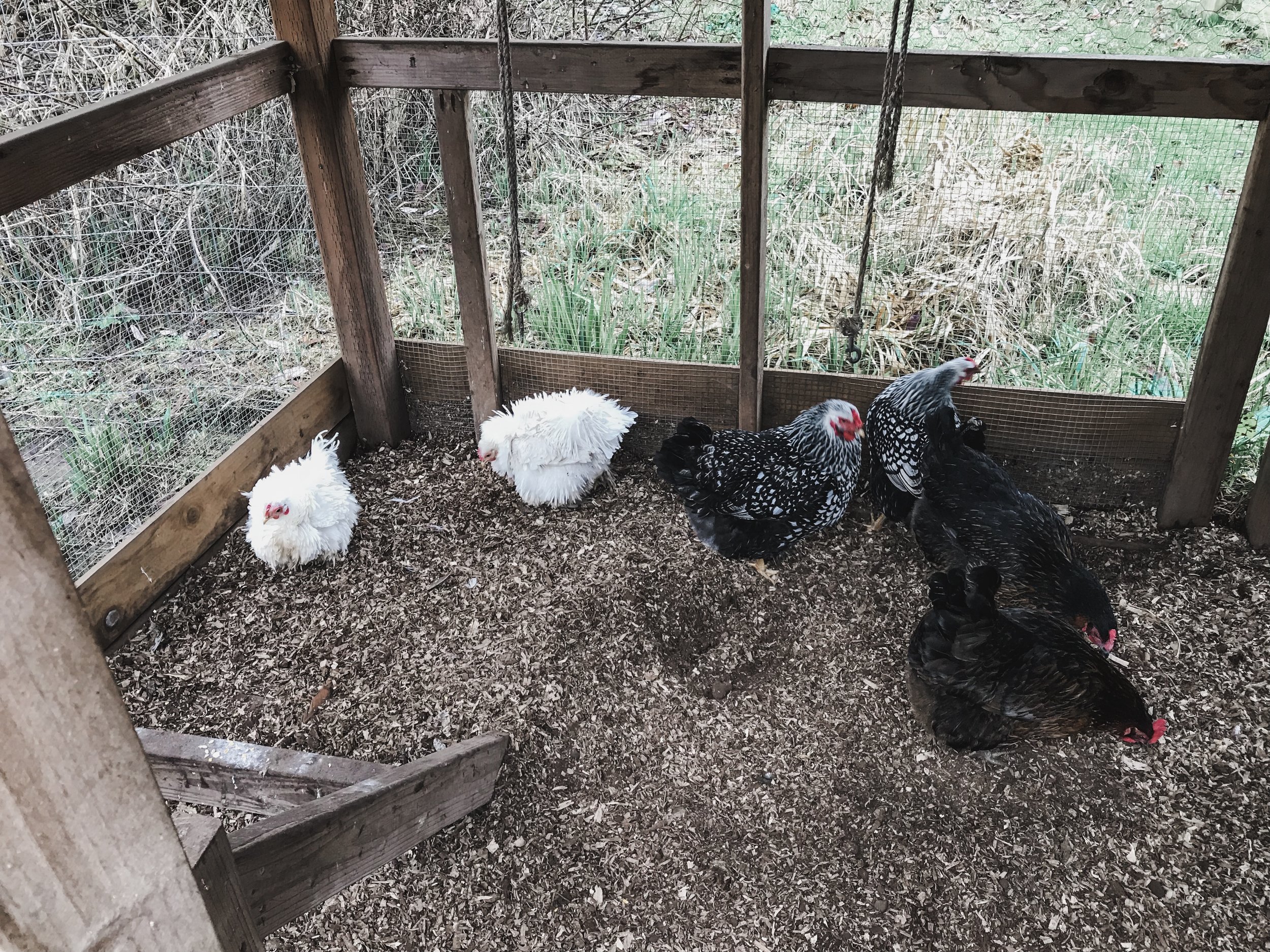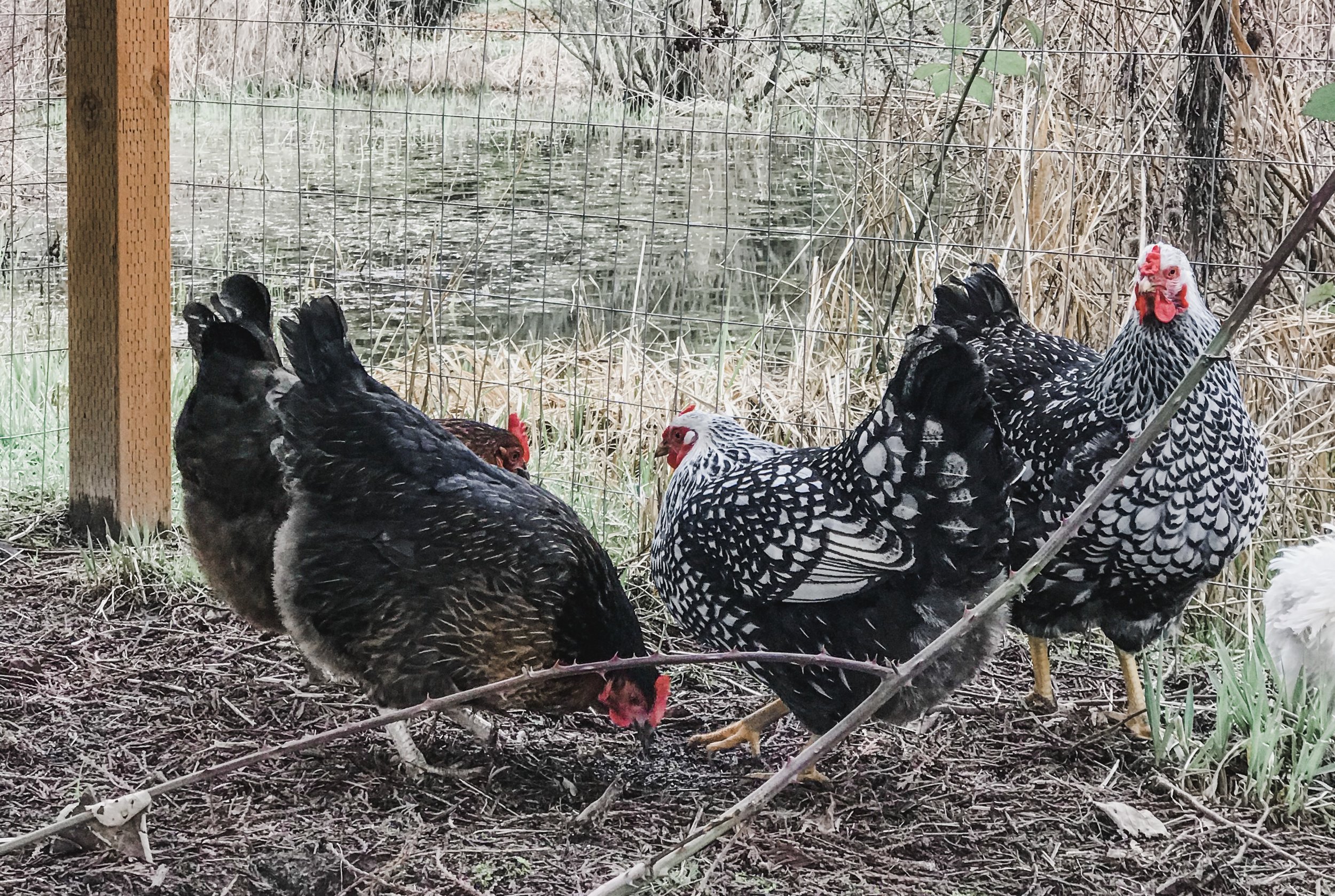What We Didn't Know about Chickens
When we first moved into our little farmhouse we thought, sure, maybe someday we will get some chickens! And then two weeks later a friend was looking for a place to re-home 6 grown, fully laying chickens. We’re such rookies to the chicken world that, a year in, we’re still learning which breeds we have. But we welcomed in 2 large chickens with black and white feathers, 2 medium chickens with a deep brown/greenish combination, and 2 amazing, white, fluffy Frizzle chickens.
In one year we started with 6 of them and we are now down to 3. Hashtag countrylife. We’ve learned a lot this year, and if you are adventuring into the world of chickens for the first time, maybe you can gain something from our experiences below!
Just so we can laugh at ourselves a little bit, I thought I’d share some of the things we learned as Chicken Rookies:
To meet our neighbors, Oliver and I gathered our excess of eggs, herbs and veggies from the garden, and walked around to see who might want some!
The Pecking Order: Poor Little Dew
It’s a real thing! Chickens determine a hierarchy and one of those chickens becomes the lowest of the low. It’s heartbreaking, really. In our coop, the most picked on chicken was the smallest white Frizzle, who we called “Little Dew” (The slightly bigger Frizzle was just named “Dew”). The other girls would chase her off from getting any feed or garden treats we threw in their roaming area. They would pluck her feathers just for existing, and they wouldn’t allow her to sleep with them on the roost, so she just had to settle for a spot on the top of the ramp. By the end of summer her feathers were almost fully gone and she looked like she’d been through it (“it” being chicken hell). Sometimes I would sneak her her own pile of treats to make sure she stayed full and fed.
Chickens Go Into Their Coop On Their Own: AKA No Broom Chasing Needed
This one is possibly the most rookie and embarrassing of all. The first few days that we had our chickens, we thought it was our responsibility to get them to go into their coop and find their roost. So imagine me looking like a fool, wearing my husband’s shoes that are 19 sizes too big, trying to herd 6 chickens around with the “help” of a broom and my horribly shaved Goldendoodle. Yeah. Cute. Finally one night, we saw them just marching up the ramp one-by-one, and realized this was their own innate skill—no wrangling necessary.
The Large Lump On their Chests: Not Cancer
I picked up one of our chickens after having them for a few weeks, and I felt a large, seemingly fragile lump on the front of her chest. I panicked! It looked swollen and red, and I thought she for sure had cancer and we would have to figure out how to manage chicken chemo. But a quick google search quickly calmed me down, saying that it was just the chicken’s crop—where food is stored before it goes into the chicken’s stomach/digestive track. So you’re welcome, your chicken probably doesn’t have cancer. (BUT read the update below for a sad update on the actuality of chicken cancer!)
There Is Nothing Quite Like Farm-Fresh Eggs: Thanks, Girls
Usually chickens need a couple weeks to adjust to their new homes and coops. But to our surprise, we checked the first morning after getting them settled and already had two, beautiful brown and cream eggs! Of course we couldn’t wait to sample them so we made a little egg scramble to taste them. It’s hard to buy store-bought once you’ve gone farm-fresh! We learned in the pacific northwest winters that there are lights and heaters you can use to “trick” your chicken’s natural cycles of resting in the winter—but we also learned that this is actually shortening their life span and not treating them very well. So…we’re just going the store-bought route for the winter.
Other Animals Like to Eat Our Chickens: RIP, Girls
As I mentioned before, last spring we started with 6 chickens…and now, mid-winter, we are down to 3 because hashtag countrylife. I am fully an animal lover, and so I legitimately got emotional with every loss, especially the ones I had to shovel up and take over to a field. The first one to go was Little Dew (poor Little Dew). The next two (a brownie and a black/white one) were taken a few weeks later. From what we’ve read, we’ve deduced Little Dew’s departure to a hawk or the barn owl, and the other girls’ to a raccoon or a possum. Yuck.
There you have it! What a little family of 3 learned—and grieved—about chickens in their first year.
I wish you luck!
Jamie L. Robison
*UPDATE* 4/13/19
Well, my friends…I first wrote this post a couple months ago when we had 3 chickens left. We now have only 2 chickens left! Poor gals. I promise we care for our chickens, but it appears that one of our chickens actually had a sickness called Ascites or “water belly” which pretty much IS chicken cancer, and is incurable. Many of you followed her last few days on Instagram, and I appreciated your caring comments! I know she’s but one wee little chicken, but it was emotional for me! I cried on and off that day that I realized she was a living creature that was dying. It turns out, it’s almost more difficult to be a part of the dying process with a chicken than it is to go out to the coop and finding chicken remains from a predator.
A couple weeks ago, I just started to feel like something wasn’t right with our little brownie. She had a lot of yuck piling up on her hind end and couldn’t seem to clean herself like chickens normally do pretty well. So, I gave her a warm bath, as I found recommended by other chicken people. She seemed to actually enjoy it a little when she was sitting in the warm water!
While I bathed her, I immediately began to feel that something wasn’t right. Her abdomen seemed huge and swollen, about the size of a grapefruit. It was pretty red in color and felt like a really full water balloon. I researched and asked around with friends for a couple weeks. The overwhelming sense was that she probably had Ascites—and there really wasn’t anything we could do about it.
From there, she went downhill very quickly! Lethargic, eyes blinking slowly, and no desire to eat or drink. Finally, she laid herself under a tree and would not move. That place became her hospice. I tried to keep her dry, offer her water and keep her company. We learned that the other coop mates like to be able to be near and say their goodbyes—which I doubted upon reading—and sure enough, as soon as we let them out of the coop, they stayed right next to her and kept her company. I placed an umbrella over her for the night so that she could be dry, at least; I patted her back and said “it’s ok, little girly.” She passed on Friday night, and we buried her off in a field under some trees.
It’s sad! But, it’s life. We have 2 chickens left out of 6 and are deciding if we will get more chickens this spring, or wait until these other two fulfill their lives. :) What would you do?!

